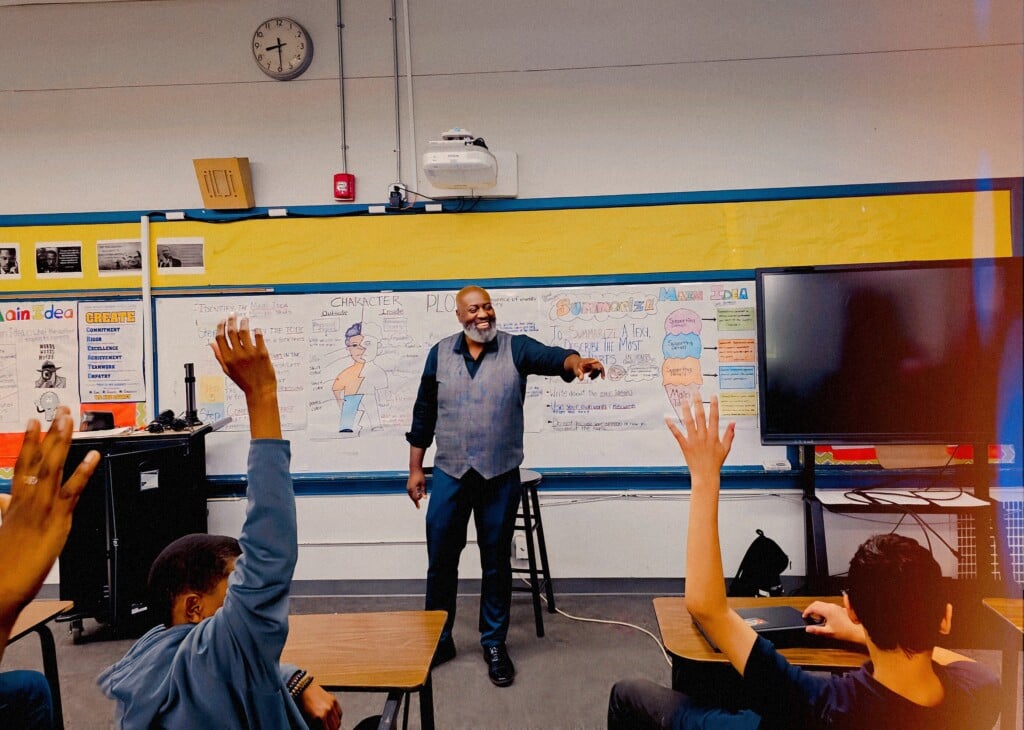Primary Science Tuition Singapore for Building Confidence in Science
Primary Science Tuition Singapore for Building Confidence in Science
Blog Article
Discover the Essential Advantages of Recognizing Primary Scientific Research for Young Students
The value of key scientific research education and learning for young students prolongs far past mere knowledge acquisition; it offers as a basic pillar in developing crucial skills such as essential reasoning, analytical, and creativity. Involving with scientific concepts via inquiry-based and interactive activities not just cultivates inquisitiveness but additionally lays the foundation for resistant, certain learners.
Enhancing Crucial Thinking Skills
Fostering critical believing skills in young learners is essential for their cognitive growth and future academic success. Vital reasoning enables children to examine info, review evidence, and make educated choices, which are vital skills in today's information-rich culture. By participating in clinical questions, young students can improve these skills as they explore principles with monitoring, thinking, and testing.
In primary scientific research education and learning, educators can assist in crucial thinking by urging trainees to ask inquiries, create hypotheses, and conduct experiments. This hands-on technique allows kids to exercise analytic and create logical reasoning abilities. As an example, when students examine the residential or commercial properties of materials or the principles of motion, they learn to evaluate their findings critically and reason based on evidence.
Additionally, discussions and collaborative tasks can promote important reasoning by supplying possibilities for learners to verbalize their ideas, obstacle presumptions, and think about diverse perspectives. By creating a helpful setting that values questions and representation, educators can support critical assuming abilities that equip young learners to come to be independent thinkers and lifelong students. Eventually, boosting these abilities lays a durable foundation for their future academic endeavors and personal development.
Promoting Curiosity and Exploration

Key science education and learning provides an organized environment where young learners can discover various sensations through hands-on experiments and observations. By permitting them to communicate with materials and involve in inquiry-based knowing, instructors create chances for youngsters to develop hypotheses, check their concepts, and reason. Such experiences support a sense of marvel and excitement regarding scientific research.

Building Confidence in Trouble Fixing
Structure confidence in analytical is a vital element of main science education that encourages young students to approach challenges with strength and creative thinking - primary science tuition Singapore. When youngsters are encouraged to engage with clinical ideas through hands-on activities and inquiry-based understanding, they establish vital abilities in essential reasoning and analysis. This process not just enhances their understanding of clinical principles but also promotes a sense of possession over their knowing
To construct confidence, educators need to produce an encouraging atmosphere where blunders are checked out as opportunities for growth as opposed to failures. This urges students to take dangers and discover different remedies to issues. By providing scaffolding and advice, instructors can help pupils navigate intricate tasks, slowly increasing their self-reliance in analytic situations.
Furthermore, collective knowing experiences, such as group projects or experiments, can even more enhance trainees' self-confidence as they find out to verbalize their thoughts and listen to others' perspectives. These communications support social abilities and reinforce the concept that analytic is often a cumulative undertaking. Eventually, growing self-confidence in analytical prepares young learners for future scholastic difficulties and furnishes them with the tools necessary for lifelong knowing.
Encouraging Creative Thinking and Technology
In the world of primary scientific research education, urging imagination and development is important for growing a dynamic learning setting. By fostering a society where young students can discover concepts and experiment openly, educators aid students develop critical assuming skills and a passion for discovery. Creativity in scientific research encourages youngsters to ask questions, design hypotheses, and take part in hands-on tasks that promote their imagination.
Integrating flexible projects and inquiry-based discovering into the curriculum enables trainees to share their distinct viewpoints and services. For example, when charged with solving an issue pertaining to their environment, trainees can conceptualize numerous approaches, bring about inventive outcomes that showcase their creativity. This not just strengthens their understanding of clinical principles yet also instills a sense of ownership over their knowing process.
In addition, imaginative science education and learning supports cooperation amongst peers, as pupils frequently share concepts and develop on one an additional's insights - primary science tuition Singapore. This collaborative spirit promotes not just innovation but likewise necessary social abilities. Therefore, by prioritizing imagination and development in primary scientific research education and learning, we equip look here young learners to think critically, welcome obstacles, and imagine opportunities, laying a solid structure for lifelong learning and expedition
Planning For Future Discovering Difficulties
Young students' capability to navigate future understanding difficulties depends upon a strong structure in primary science education. This fundamental understanding furnishes students with critical assuming skills and an organized strategy to analytic, vital for tackling intricate issues in an ever-evolving globe. Primary scientific research fosters inquiry-based understanding, motivating pupils to ask concerns, discover hypotheses, and participate in hands-on experiments.
As they develop these skills, students become skilled at evaluating information, acknowledging patterns, and attracting informed verdicts. Such proficiencies are important not only in clinical areas but likewise in mathematics, website link innovation, and design (STEM), where interdisciplinary understanding is increasingly critical.
Furthermore, key scientific research education cultivates a sense of interest and durability in young students, allowing them to watch challenges as opportunities for growth. As they come across and get over barriers in their clinical explorations, they develop self-confidence in their capacity to adjust and innovate.
Ultimately, a strong structure in primary science not only prepares young learners for scholastic quests however also equips them with the devices essential for long-lasting learning and adaptability in a quickly altering global landscape. By buying primary scientific research education and learning, we are buying the future possibility of our students.
Final Thought
Comprehending main science is essential for young learners, as it cultivates important reasoning, interest, and creativity. Involving with clinical ideas through hands-on experiments constructs and improves analytical abilities strength. This foundational knowledge not just furnishes students to assess information and recognize patterns yet likewise supports an inquiry-based way of thinking. Inevitably, the benefits of key scientific research education prepare youngsters for future academic searches and instill long-lasting understanding habits crucial for prospering in an ever-evolving world.
The value of key More Bonuses science education for young students expands far beyond simple expertise procurement; it serves as an essential pillar in establishing crucial skills such as vital reasoning, analytic, and creative thinking. By creating a supportive environment that values inquiry and reflection, teachers can nurture vital thinking skills that empower young learners to come to be long-lasting students and independent thinkers. Thus, by prioritizing creative thinking and innovation in key scientific research education, we equip young students to believe seriously, accept difficulties, and imagine possibilities, laying a strong foundation for lifelong knowing and exploration.
Young learners' capacity to browse future knowing obstacles pivots on a strong foundation in primary scientific research education and learning.Recognizing main science is vital for young learners, as it fosters crucial reasoning, inquisitiveness, and imagination.
Report this page